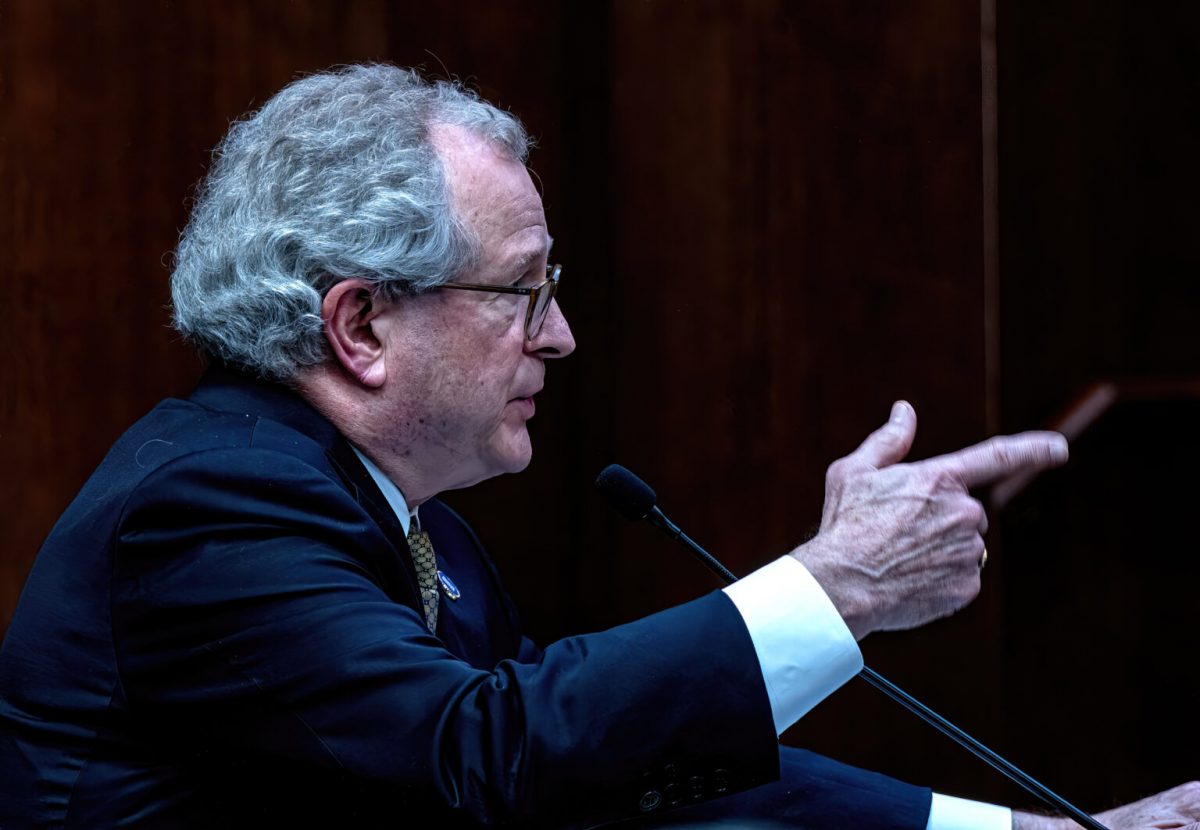The sponsor of legislation criticized as a “takeover” of Memphis Shelby County Schools confirmed Tuesday the bill is on hold until 2026.
Rep. Mark White (R-Memphis), chairman of the House Finance Committee, said House and Senate versions approved earlier in the day were too far apart for passage.
The Tennessee Legislature adjourned for the year Tuesday evening without taking further action on the bills.
One of the key sticking points was that the Senate bill was amended to enable an advisory board to select replacements for elected Memphis board members removed by the state, a provision considered unconstitutional. It differed from the House version.
White said he wants a “strong oversight board” and that a compromise would weaken the measure. He declined to have competing House and Senate measures sent to a conference committee to work out a compromise.
Tennessee lawmakers file Memphis Shelby Schools “hostile takeover” at last minute
“We prefer we keep the bill alive,” White said, adding he would work on the legislation through the summer and bring it back next year for consideration.
The House and Senate passed separate bills Tuesday creating a management group to oversee Memphis Shelby County Schools despite complaints that setting up a “takeover” board could prove to be unconstitutional.
White’s decision came as the legislature moved toward adjournment for the year.
Earlier, White told colleagues the change is needed after decades of poor performance by the school district and board, including a billion dollars in deferred maintenance and under-used buildings despite a $1.8 billion budget.
The advisory board, which would be funded locally instead of by the state, would supersede the elected board on budgets, contracts exceeding $50,000 and some policy. Under one plan, it would be responsible for reviewing the entire system and making an improvement plan.
Separately, the legislature approved $6 million for a forensic audit of the school district. But Republicans, who hold supermajorities in the House and Senate, refused requests to complete the audit before embarking on the new format.
Later, White said waiting a year would enable the audit to move forward before an advisory board is created.
Sen. Brent Taylor (R-Memphis), who carried the Senate version of the bill, laid most of the blame for poor performance on school board members, saying students are “hanging in there like a crackhead’s last tooth.”
White and Taylor denied the plan is a “takeover,” with Taylor instead describing it as “a list of cascading interventions”
Votes in both chambers didn’t come without opposition from Memphis lawmakers who said the state should allow voters to select new school board members, instead of giving the state’s education commissioner authority to remove board members and the district director.
Sen. London Lamar (D-Memphis) was among numerous Shelby County lawmakers who spoke out against the measure. In response to Taylor, she said, “Memphis is not the last tooth in a crack addict’s mouth.”
Lamar and other Shelby lawmakers compared the plan to the state’s Achievement School District, which is being phased out after a decade and more than a billion dollars spent. They also accused the state of usurping local voters.
“It’s not our job to take the power away from the local school board,” Lamar said.
Lamar later called the outcome a “victory for local control.”
Rep. Antonio Parkinson (D-Memphis), a consistent critic of the Achievement School District for five-plus years, said the bill’s provision allowing the state to turn schools over to charter operators shows that the plan is designed to benefit hedge funds and corporations.
Shelby County school systems have gone through several stages in the last decade, including dissolution of Memphis City Schools and creation of suburban districts such as Collierville and Arlington, all of which left Memphis Shelby County Schools with a large concentration of low-income students.

The Memphis Shelby County School Board also removed its director recently, creating more conflict within the district and giving lawmakers ammunition to single out the school system, even though the bills applied to schools statewide.
Rep. Kevin Vaughan (R-Collierville) told colleagues he had shifted views after initially thinking lawmakers should wait until the audit is complete before taking action.
“We’ve got to turn the ship around in southwest Tennessee,” Vaughan said. “We’re doing a disservice to children who are not getting a fair shake.”
The legislation also lifted income caps on the Education Savings Account program in Shelby to enable more families to qualify for funds to enroll children in private schools. Recipients can use about $9,500 in state funds to go toward tuition.
Sen. Jeff Yarbro (D-Nashville) predicted such a move would cause confusion and lead to a lawsuit.
Tennessee Lookout is part of States Newsroom, a nonprofit news network supported by grants and a coalition of donors as a 501c(3) public charity. Tennessee Lookout maintains editorial independence. Contact Editor Holly McCall for questions: info@tennesseelookout.com.
